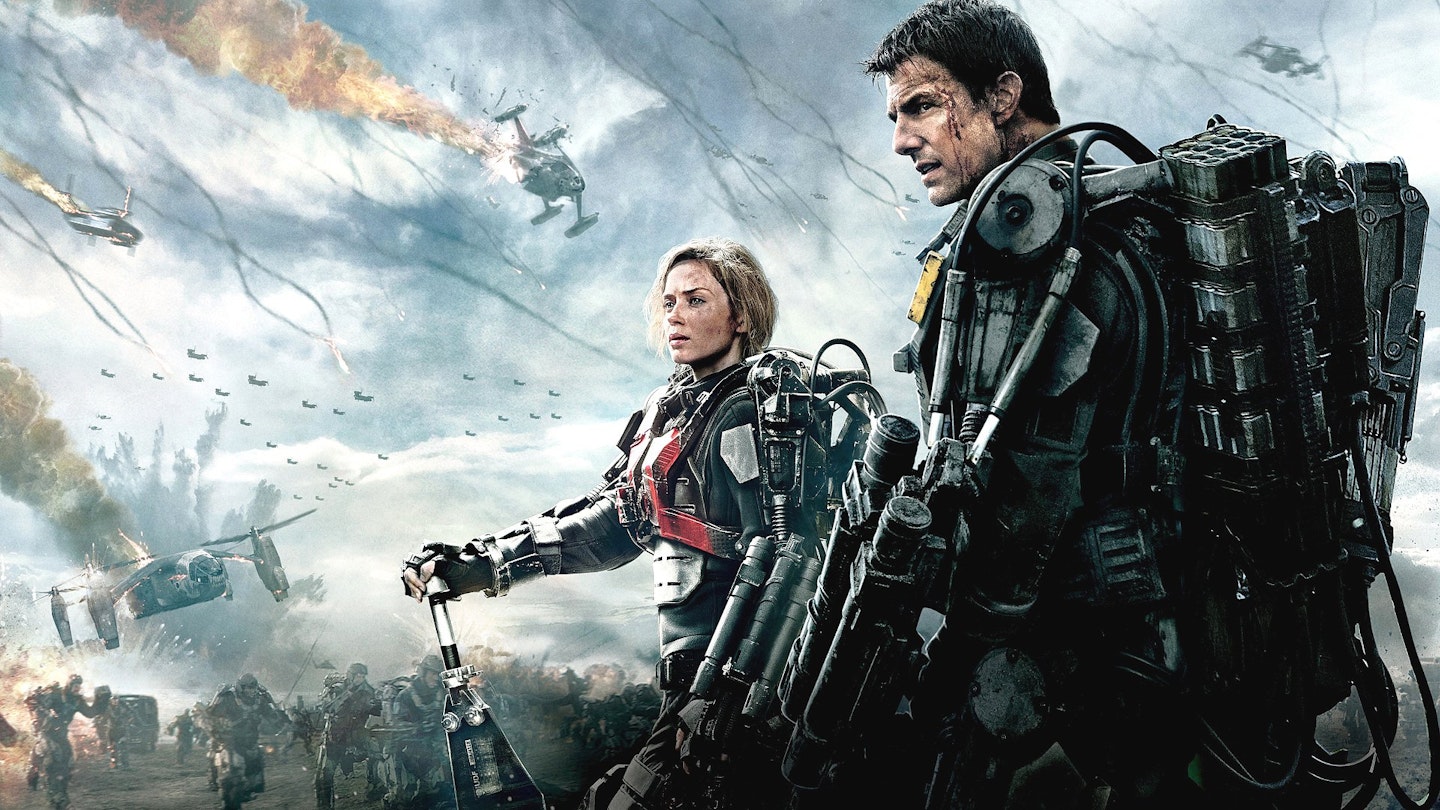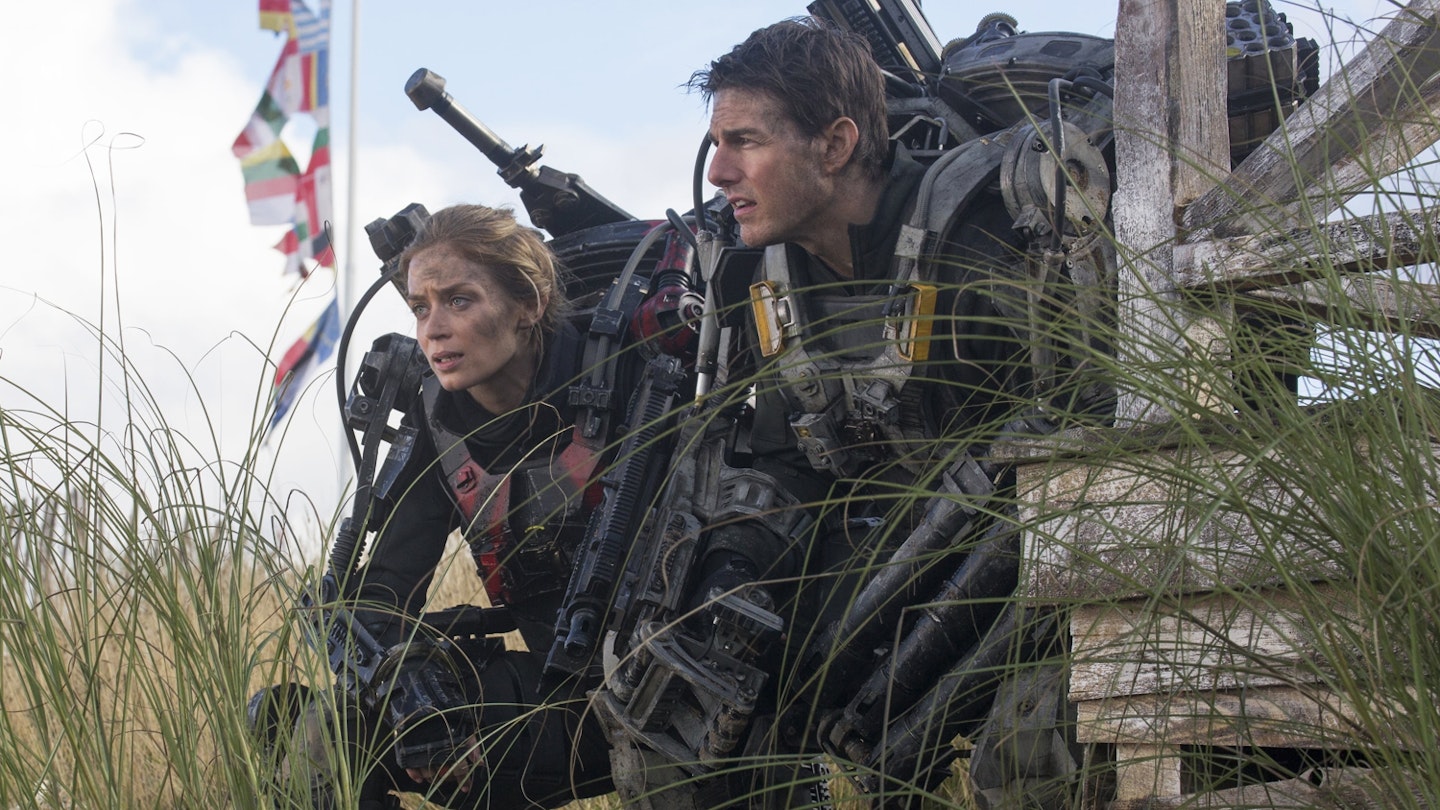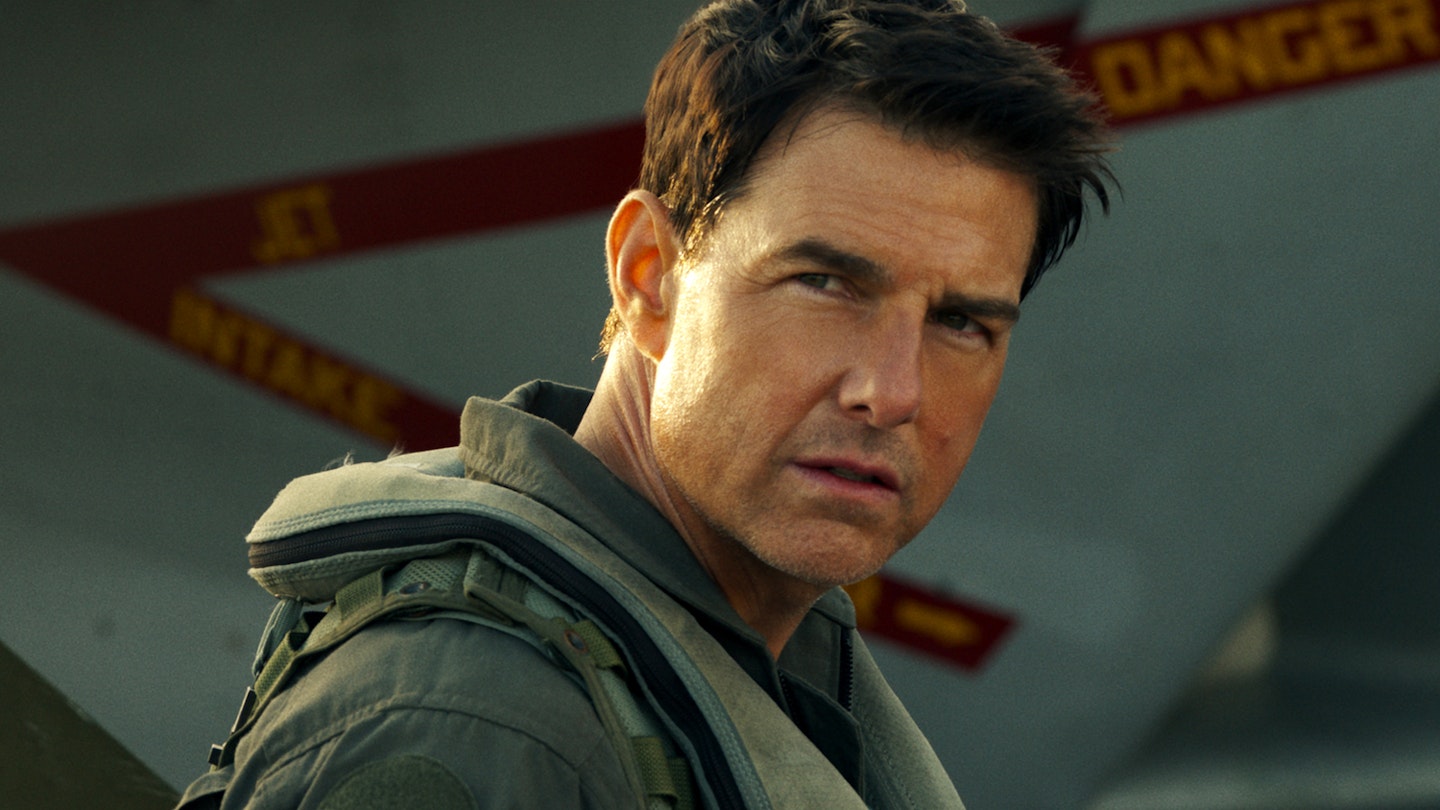On the face of it, there is nothing particularly original about Edge Of Tomorrow. Brush your hand across its gritty surface and you’ll smear the thin layer off a teeming nest of influences: Groundhog Day, the most obvious, for its time-loop plot engine (and by extension Source Code); Saving Private Ryan, for its French-beach brutality; Aliens, Starship Troopers and the Matrix trilogy for its bombastic portrayal of big-tech conflict with multi-limbed, insectoid-biomechanical extra-terrestrials. It’s exquisitely apposite that, if you’re coming to this film from a healthy upbringing on action-sci-fi cinema of the ’80s and ’90s (with Harold Ramis’ clock-resetting comedy being the one rom-com it was okay for you to love), you’ll experience a throbbing sense of déjà vu — only made more acute by the film’s shared chromosomes with last year’s Elysium and that other Tom Cruise-on-a-devastated-Earth picture, Oblivion.
None of which is to diminish Empire’s recommendation: director Doug Liman and his screenwriting triumvirate of Christopher McQuarrie and brothers Jez and John-Henry Butterworth (adapting Hiroshi Sakurazaka’s light novel All You Need Is Kill) wear all these influences well, and with pride. Why else enlist the ever-reliable Bill Paxton as a puff-chested, adage-chewing sergeant if not to wink at his past life as a colonial marine? Edge Of Tomorrow may be hugely familiar, but welcomingly so. And it also proves to be huge fun.
This is in no small part to the movie’s most significant influence of all: video games. While we still await an even remotely decent video game-to-movie adaptation, Edge Of Tomorrow provides the perfect substitute. It may not have spawned directly from any console-based IP, but it is thoroughly steeped in gaming culture and logic — mainly via Sakurazaka himself, who is also a programmer. Lay the film’s plot over a game-design template and you’ll find a pleasingly neat match. When Cage (Cruise) awakens into the first day of his enforced demotion (also the second-to-last of his life), he is effectively starting from a save point. When, eventually, a close encounter on that bloody beach with a tentacle-flailing, blast-furnace mouthed “alpha” — the end-of-level boss — causes his health bar to retract to zero, we snap back to that save point, and he must ‘play’ the two days again. With each replay, he must learn how to survive to reach the next ‘level’ (to ultimately meet the end-of-game boss), although, paradoxically, just as we learn from our mistakes in life, he must learn from his deaths. (If you’ve ever sunk days of playtime into a Dark Souls game, you’re guaranteed to sympathise.)
Part of this is through his power of recollection, plus development of muscle-memory: step left to avoid explosion here, shoot right to eliminate incoming mimic there — every repeated battle is pre-programmed, so he just has to learn the patterns. Then part of it is through a more straightforward regime of personal improvement — or ‘levelling up’ — which comes via Cage ‘unlocking new content’. Having mastered the timing of a roll between a truck’s wheels in one amusing and novel sequence, he is rewarded with access to a trainer (Emily Blunt as seasoned soldier Rita Vrataski) who not only provides him with the necessary information to progress to new ‘levels’, but also enables him to ‘spend’ his ‘experience points’ in her automated dojo.
If this all sounds as mechanical as the exo-suits Cage and his comrades wear, don’t be put off. McQuarrie and the Butterworths have crafted a rich and drily witty script that really takes the edges off the concept. Seemingly throwaway lines accrue layers of meaning as Cage relives, and relives, these two days. “Battle is a true redeemer,” barks Paxton’s sarge at his men; “tomorrow morning you will be baptised. Born again.” A little later, just before being dropped into the hotzone, a fellow grunt yells at Cage, the raw recruit, “I think there’s something wrong with your suit... Yeah, there’s a dead man in it!” So true.
The writers have fun with the whole death-to-progress concept, too. Once Blunt’s combat-hardened Rita joins Cage in his quest, it becomes her job to ‘press quit’ when things go wrong — by shooting Cage through the head. Also, after the plot’s loopy logic is firmly established (which, like any time-travel movie, raises more questions than it provides answers), they employ it to maintain tension: how much does Cage know? Has he been through this scenario before? It’s deliberately never clear just how many lives he’s already gone through to get to any given scene. It is a shame that the deaths themselves aren’t allowed to have more impact. In a previous era, this would have been a 15-to-18-certificate movie that would not have shied away from presenting Cage’s many and varied demises, gore and all. But the commercial pressure to audience-broaden has required Liman to cut away as much as possible, and a visual sense of trauma is lost.
Still, Cruise sells it brilliantly. Indeed, this is his strongest performance in some time and he revels in the character’s development. He starts out as a smug, smirking, weaselly coward, not above trying to blackmail an implacable general (Brendan Gleeson); Cage is so ineffectual, he can’t even switch off the safety on his hand-cannons. During his first drop he stumbles lamely about, watching his comrades die in the dirt, doing little useful to help them. But battle is a true redeemer, of course. So gradually, gradually, the weasel becomes a lion. Although not without a self-serving detour or two along the way.
Blunt, too, is on strong form, exhibiting a steely poise that makes her comfortably believable as a war-propaganda poster-girl known simultaneously as The Angel Of Verdun and Full Metal Bitch. She is less a romantic interest for Cruise (who seems to be going through an English actress co-star phase) than she is his mentor, and his foil. Doug Liman has always been an astute, experimental chemist, and while this isn’t quite the Brad-and-Angie lab explosion of Mr. & Mrs. Smith, it’s at least as strong a pairing as Matt Damon and Franka Potente in The Bourne Identity (which, incidentally, is another movie this comes to echo during one later episode particularly).
After the forgettable Jumper and Fair Game, it’s good to see Liman back on pyrotechnic form, orchestrating some inventive combat spectacle. This could well be his biggest hit yet — and Cruise’s for a good while, too. A rebirth, of a sort, for both of them. If nothing else, it’ll stand out as one of summer 2014’s most entertaining surprises.








